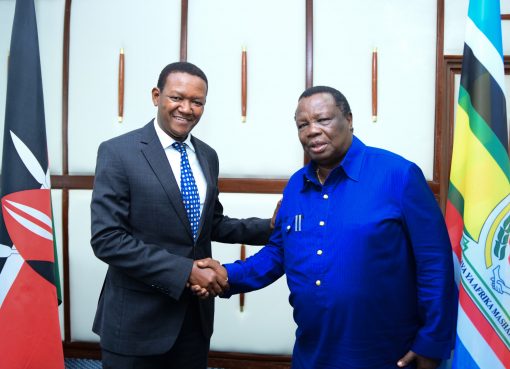Leaders from the four Kenya-Somalia borderline counties of Mandera, Wajir, Garissa and Lamu held a joint consultative meeting with security agencies to address the pressing security challenges facing counties bordering Somalia.
The meeting, themed “Rethinking Security Approaches,” comes at a crucial time when these borderland counties are aligning with national security efforts to implement development programmes.
Part of the initiative is to promote community engagement, ensure representation of gender and youth, foster inclusivity, and build trust between the communities and State security systems.
Governor Mohamed Khalif of Mandera reiterated that the fight against Al-Shabaab will only be successful if proper structures and coordination are put in place among all residents.
He urged citizens to actively share information to combat these security threats.
In light of the increasing deaths of civilians and police officers due to attacks by Al-Shabaab militants, the affected county leaders organised a Security meeting to address the indiscriminate attacks.
Governor Ahmed Abdullahi of Wajir urged residents to follow the example of what is happening in Somalia and take responsibility for driving out these militants themselves.
During the meeting, the leaders emphasised the importance of providing human rights compliance training to security personnel to minimise violations of human rights in their operations.
The initiative stemmed from discussions among political leaders about common security concerns in the region.
They recognised that the four counties, due to their proximity to Somalia, face heightened insecurity from the terror group Al-Shabaab.
The long, porous border between Somalia and Kenya has facilitated the flow of arms and the movement of the group with relative ease.
The leadership group of Kenya-Somalia borderline counties proposes coordination, collaboration, and unity to combat the security challenges collectively.
Apart from the porous border with Somalia, locals are encouraged to play an active role in exposing terrorists or those who harbour them.
This community involvement is seen as a crucial step in bolstering security efforts in the region.
By Adan Mohamed



